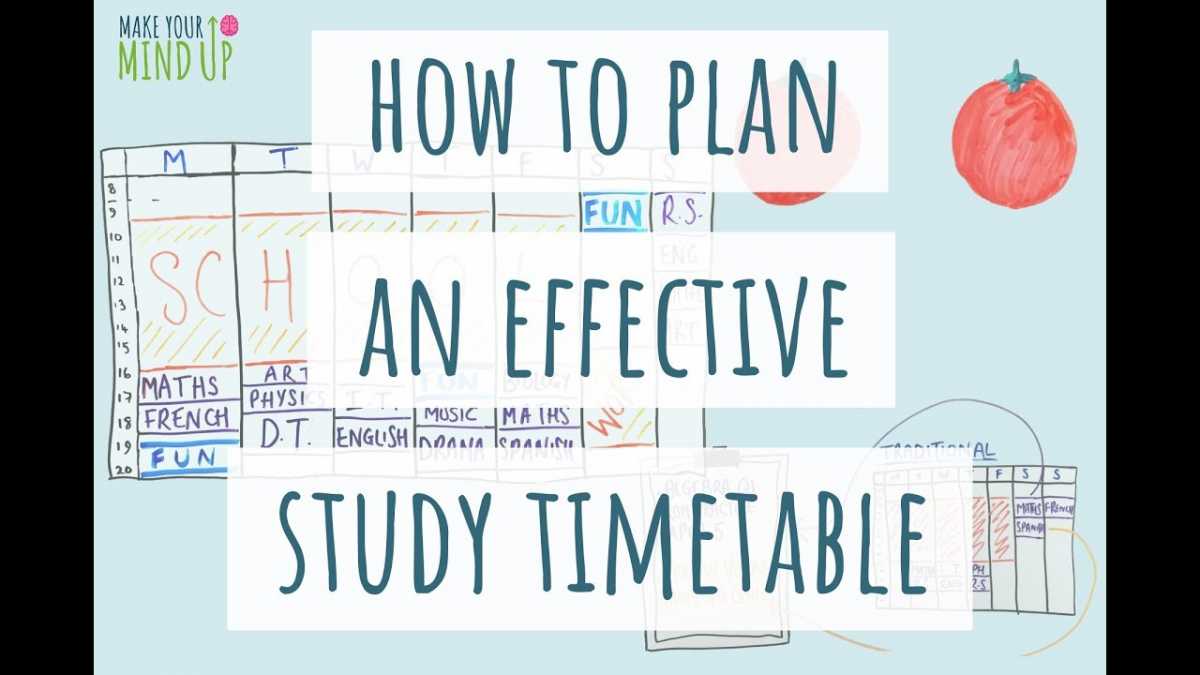Do you know how to excel in exams and improve your academic performance? It’s hard work complimented by smart work. A study timetable that lets you develop the right habits and gain control over your study time, appears first in that process.
There are many students dedicated to their lessons but don’t know the correct method to set up a study timetable. It turns up to be a huge distraction for them and they land in an unorganized state. Could you relate yourself to this scenario and hence look for ways to come out of it? Then, you’re at the right place.
In this article, we will tell you the detailed steps to create an effective study timetable that helps you upgrade your overall grade.
Steps to Make an Effective Study Timetable
Whether you’re taking a regular class or a certification from the platforms that teach how to sell online courses ,preparation should be on time. Let’s have a look at the steps to build an effective study schedule.
Step 1: List All Your Responsibilities
To ensure a smooth setup of your study timetable, it’s crucial to jot down all your activities first.
- Count in the extracurricular activities you’re engaged with.
- Add the dates to family functions or birthdays and also include holidays.
- Everything might not turn up in your mind right in the beginning. You can add those later when it clicks on your mind.
After you have jotted down your regular tasks other than studies, you’re set to jump to the next step.
Step 2: Have All Your Resources Handy
The second step in setting up a study timetable is having all the necessary materials and resources handy with you. Without having them right with you, making a study schedule is not possible.
- Include the syllabi for all the subjects that you have in your grade.
- The assignments to be submitted for the respective subjects are a must.
- Any pending project work or assessment should be present too.
After you are done piling the primary details, filling up the rest of the spaces in the timetable gets easier.
Step 3: Choose Your Study Time
Now comes the most crucial step in setting up your study timetable. When do you think you can read, learn and memorize the concepts better? Before you decide on this part, take a look at the factors given below:
- Do you get up early and have a smooth study time while going through your lessons?
- Are you a night owl? Can you keep the information inside your brain well before going to sleep?
After you interpret the best time to study, you can schedule it as the primary slot in your study timetable.
Step 4: Write Down the Subjects in the Chart
Here’s a significant part of setting up your study timetable chart. Once you’re set with the grid, you need to start filling the boxes with subject names and time allotments.
- Which is the subject you’re not very comfortable with? Is it Maths or Chemistry or English? Whichever it is, add them first to the list.
- Separate the study sessions into little sessions of 45 minutes or an hour.
- If you’re willing to allow more time for the difficult subjects, you can also do so.
This way fills up the entirely weekly chart that includes regular subject plans, assignments, and other engagement routines if any. Growing up to be an expert in this domain, you can choose to launch course to help out the candidates in need.
Step 5: Schedule Time for Breaks
You are no robot to keep studying for constant long hours without giving yourself some break. Breaks are crucial to refresh your mind and start again with your lessons. Studies suggest breaks are an essential part of productivity.
While filling out the timetable, make sure to schedule short breaks in between the sessions. Experts say a ten or fifteen minutes break after 45 minutes of work can be a real energy booster.
After you have refreshed your mind and have gathered back your energy, it’s time to get back to your desk and start with your lessons again with a fresh mind.
Wrapping Up
The five-step study table plan will help you stick to your academics properly. It will keep away the larger responsibilities of tension at the eleventh hour. You’ll see the work being done or the lesson being prepared right on time without having any repeated reminders from your teachers. So, when are you creating your study timetable?

